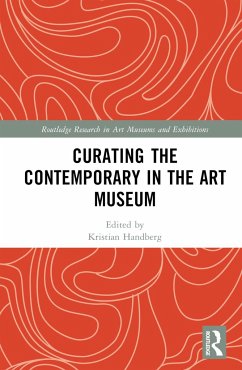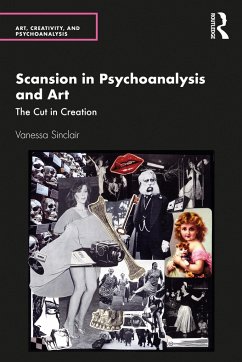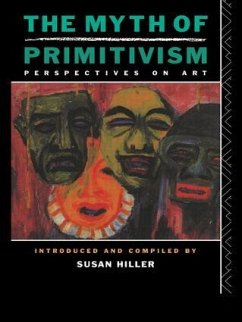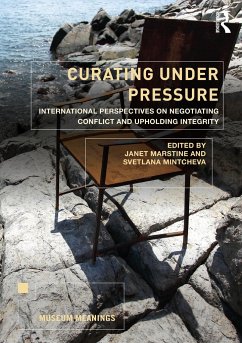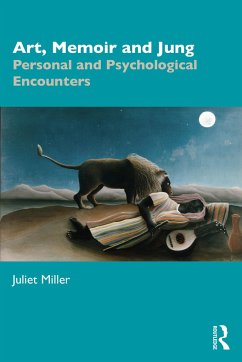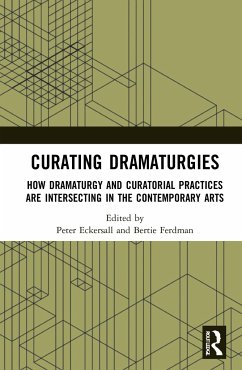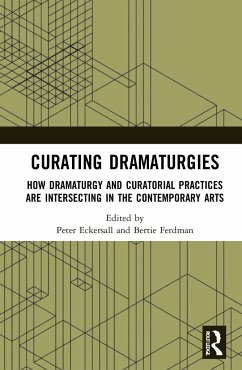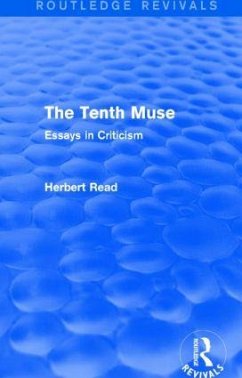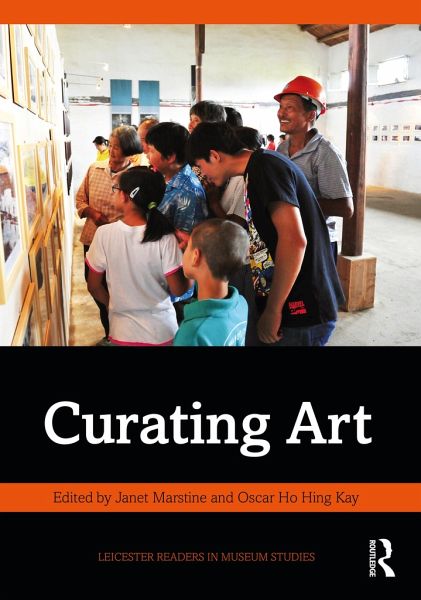
Curating Art
Versandkostenfrei!
Versandfertig in 6-10 Tagen
41,99 €
inkl. MwSt.
Weitere Ausgaben:

PAYBACK Punkte
21 °P sammeln!
Curating Art provides insight into some of the most socially and politically impactful curating of historical and contemporary art since the late 1990s. It offers up a museological framework for understanding watershed developments of curating in art museums.Representing the plurality of theory and practice around the expanded field of relational curating, the book focuses on curating that prioritises the quality of relationships between people and objects, between institutions and people and among people. It has wide international breadth, with particularly strong representation in East and S...
Curating Art provides insight into some of the most socially and politically impactful curating of historical and contemporary art since the late 1990s. It offers up a museological framework for understanding watershed developments of curating in art museums.
Representing the plurality of theory and practice around the expanded field of relational curating, the book focuses on curating that prioritises the quality of relationships between people and objects, between institutions and people and among people. It has wide international breadth, with particularly strong representation in East and Southeast Asia, including four papers never before translated into English. This Asian cluster illuminates the globalisation of the field and challenges dichotomies of East and West while acknowledging distinctions within specific, but often transnational, cultural spheres.
The compelling philosophical perspectives and case studies included within Curating Art will be of interest to students and researchers studying curating, exhibition development and art museums. The book will also inspire current and emerging curators to pose challenging but important questions about their own practice and the relationships that this work sustains.
Representing the plurality of theory and practice around the expanded field of relational curating, the book focuses on curating that prioritises the quality of relationships between people and objects, between institutions and people and among people. It has wide international breadth, with particularly strong representation in East and Southeast Asia, including four papers never before translated into English. This Asian cluster illuminates the globalisation of the field and challenges dichotomies of East and West while acknowledging distinctions within specific, but often transnational, cultural spheres.
The compelling philosophical perspectives and case studies included within Curating Art will be of interest to students and researchers studying curating, exhibition development and art museums. The book will also inspire current and emerging curators to pose challenging but important questions about their own practice and the relationships that this work sustains.





